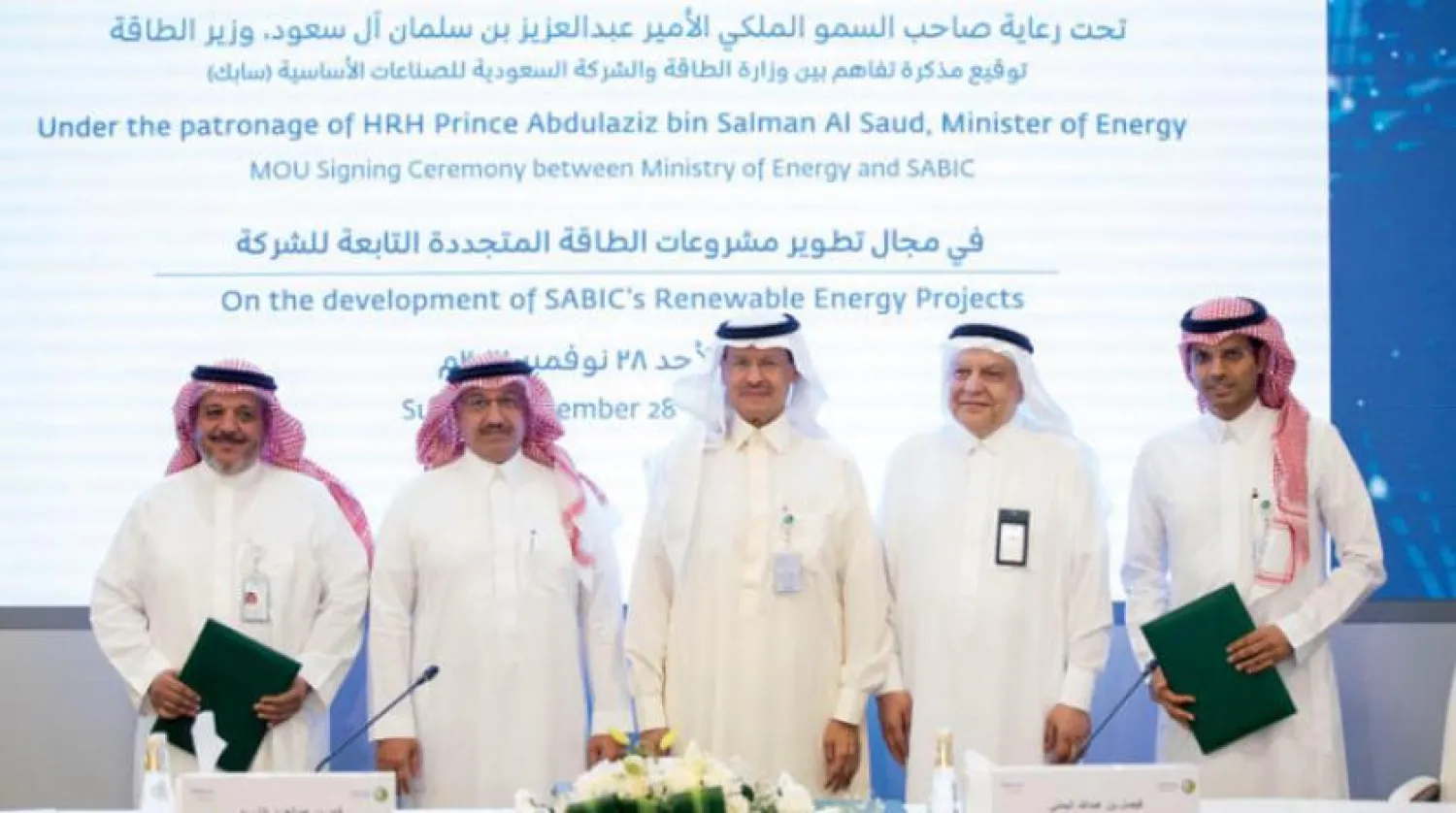Saudi Arabia's Ministry of Energy and Saudi Basic Industries Corp (SABIC) have signed a memorandum of understanding (MoU) to develop renewable energy projects.
The Ministry aims to support the development of the company's renewable energy projects, ensure the readiness of the transmission networks, conduct the necessary preliminary studies, and prepare tenders and awards for such projects, it said in a statement.
The Ministry focuses on supporting and encouraging the trend towards the utilization of renewable energy in the Kingdom to achieve Vision 2030, such as promoting sustainability and preserving the environment and natural resources.
It also includes empowering the private sector, enhancing the local content, localizing industries related to this sector, and providing more job opportunities in the field of renewable energy locally.
Saudi Energy Minister Prince Abdulaziz bin Salman said that support and assistance had the most significant impact in unifying efforts in energy among state institutions to enhance their contribution to achieving the goals of Vision 2030.
Vice-Chairman and CEO of SABIC Yousef Al-Benyan said the cooperation with the Ministry is one of SABIC's main potentials to achieve its net-zero emission strategy, which was announced as part of the Saudi Green Initiative.
SABIC will increase its use of renewable energy in the Kingdom to enhance its contribution to reducing greenhouse gas emissions, Benyan concluded.
The cooperation adds a new dimension to the giant oil company's commitment to enabling the development of renewable energy resources and implementing the concept of a circular carbon economy in the Kingdom, which was adopted by the Kingdom and supported by the G20 Summit during its presidency in 2020.
The Ministry of Energy is working, within the framework of renewable energy initiatives, to support the promising sector by encouraging partnerships between the public and private sectors to create a competitive national market for renewable energy.
SABIC was recently awarded the Best Recycling/Circularity Initiative at the Chemical Week's Sustainability Awards 2021 and shortlisted in the Best Sustainable Feedstock category.
The awards recognize sustainability excellence among global chemical producers. A panel of 12 industry experts selects winners.









